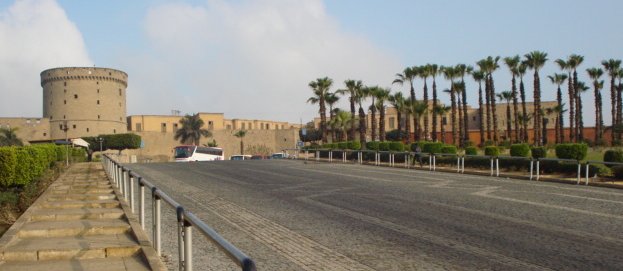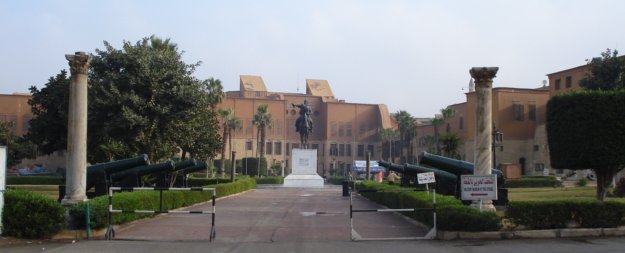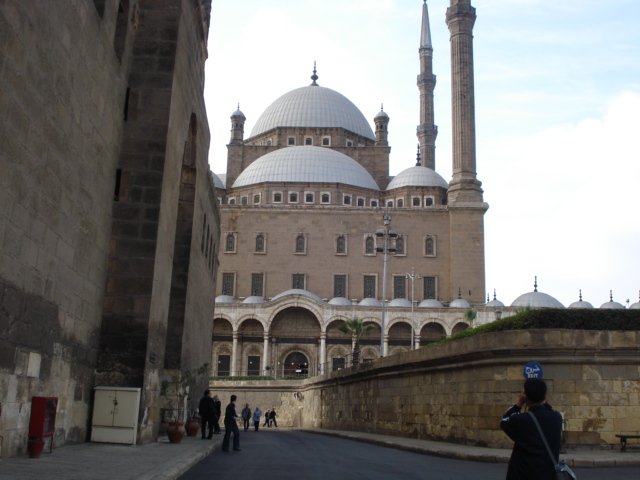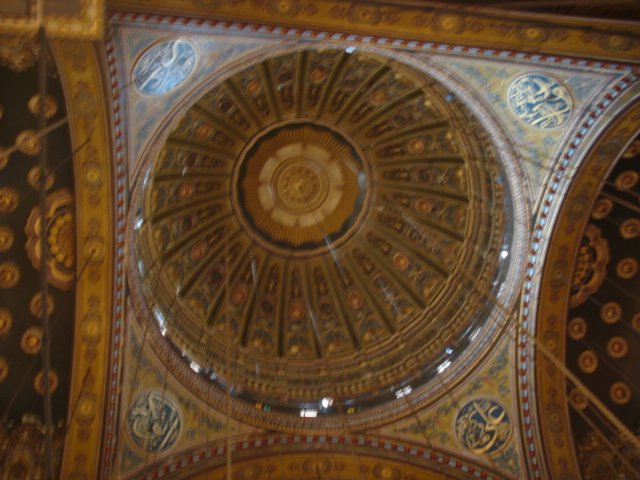This entry is one of the late ones I mentioned. This is the last of my Egypt entries.

Saladin built the Citadel and it became the home of Egypt’s rulers for the next 800 years. You can see why it was built here. The high ground commands Cairo. All medieval fortresses have a similar feel and this one reminded me of those I have seen around Europe. Europeans learned the art of making stone fortifications from the Muslims during the Crusades, but Muslim inherited much of the knowledge from the Romans and stone walls are stone walls. Anyway, the feeling was familiar, except for the minarets.

Mohammed Ali, ruler of Egypt not the fighter, added a lot to the complex, including the big Mohammed Ali Mosque. He was an Albanian born in what is now Greece who evidently never spoke any language well other than Albanian. It gets even more complicated. He took power from the Mamluks, slave soldiers seized from the Balkans and Caucuses, among other places. The Turks ran one strange empire. Mohammed Ali invited the leaders of the Mamluks to a feast at the Citadel and then murdered them on the way out. That is a dish best served cold.

The Citadel features an interesting military museum with lots of weapons and uniforms. The big drawback is that it was restored with the help of the North Koreans, so many of the exhibits are comically propagandistic. Although the list of recent Egyptian war victories is short, they managed to imply some or at least a few heroic stands. The N. Koreans made a panorama of the Yom Kippur War that looks like the D-Day landings. They probably copied the D-Day pictures. They have a painting of the British in Egypt in the 19th Century showing a couple of guys who look like they came out of a 1990s GQ. I bet that is what the N. Koreans used as models. How dumb is it to ask the N. Koreans to help with something like this, but despite the propaganda veneer and the mislabeling of some exhibits, it is worth seeing. Alex especially liked it.

The Mohammed Ali Mosque is an interesting place. It is Turkish, not Egyptian style, and looks like those you might find in Istanbul. Mohammed Ali is an interesting and important historical figure. He rescued Egypt from chaos, helped modernize the place in the 19th Century and ruled for many years, yet we hear very little about him in our history classes. I think he suffers from being a non-European leader when most history was written in and about Europe. He also doesn’t get much support from nationalists or the new PC crowd, which venerates non-western leaders, because of his peculiar origins. He was essentially an imperialist and sort of an adventurer, who could capture the imaginations of Victorians but leaves modern readers cold.

